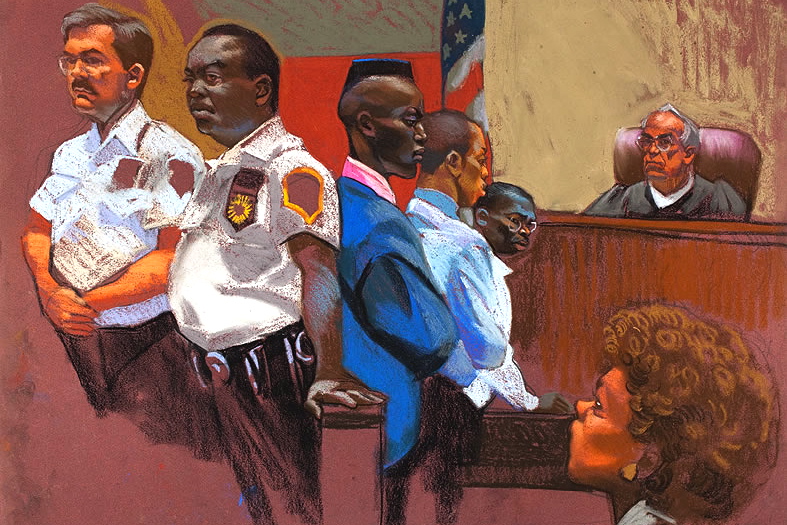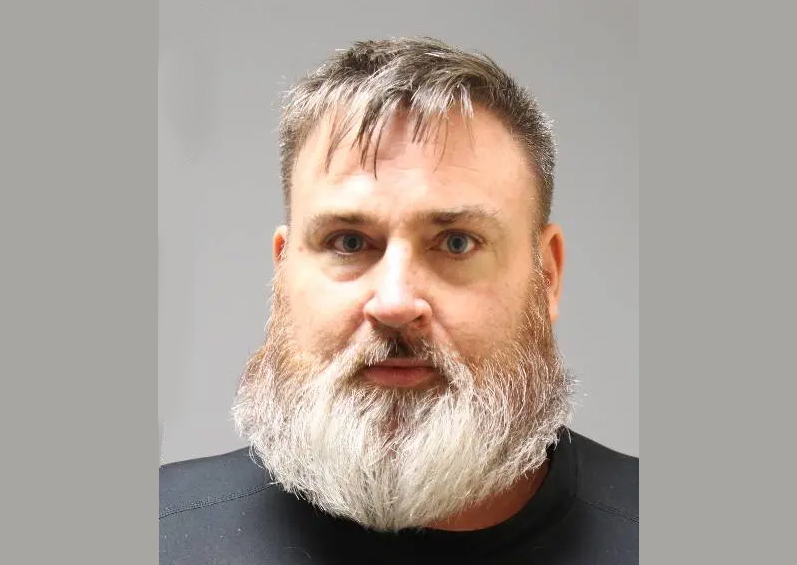Review: 'Central Park Five' Recounts Injustice Done to Innocent Teens

I went to see the documentary by Ken Burns called The Central Park Five at the Southampton Cultural Center Thursday. This film kicked off the four-day Black Film Festival in the Hamptons.
The Central Park Five were five black teenagers, ages 14 to 16, who were arrested, charged and—with almost no evidence but their confessions—convicted of gang raping and attempting to murder a white female jogger in Central Park on the night of April 19, 1989. They were sentenced to between seven and 15 years in jail, though they never committed this crime. At trial, it was already known none of their DNA was found at the crime scene. This information was not presented. There was DNA evidence, semen of another man at the crime scene. And years later, when this man, who was in jail for other rapes he’d done, confessed and gave detailed descriptions of what he did that only the perpetrator could know, there were still those who believed that the young black teenagers did it. They had confessed, didn’t they?
Well, truth prevailed, and the Central Park Five were released. They have since sued the police and the city for this false arrest. That was nine years ago. The lawsuits are still in court.
A panel discussion followed the movie. One of those on the panel was Yusef Salaam, 15 at the time of the rape, now nearing 40. He was one of the five. And as it was said in the film, he was the only one of the five who never confessed. He was asked why he had not confessed while the others had.
“The police worked on the others for more than 15 straight hours,” he said. “The police told them they could go home after they told ‘this story’ of what they did. As it happened, I was the last one into the police station. They worked on me for only five hours. I’m sure if I got the whole 15 hours, I would have broken too.”
The moderator of the panel asked the audience if there were anyone in the audience who felt he could survive a 15-hour grilling like that without their parents or a lawyer. Only a few hands went up.
New York City was a dangerous city in 1989. That is just the way it was. Everyone who lived here either knew someone who had been mugged or had been mugged themselves. In parts of this city there was gunfire and police sirens day and night. People avoided eye contact when in public. Everyone was afraid. There were murders on the subway. And this raping and beating of a white woman in Central Park was sort of the last straw. Someone would have to pay.
In the movie, there is video of Mayor Ed Koch. “The people who raped this woman have been arrested,” he says when the boys are arrested. “I have to use the word ‘alleged,’ but the fact is we got ’em. We got ’em.”
There is footage in this movie never before seen in public. We watch these 14-, 15- and 16-year-olds confess. The confessions don’t match up. Who did what when is different with each kid, but then it was dark, who keeps track of these things? They did it. Right? One of the most telling pieces of video is of one of these kids confessing to this assistant DA while looking at the police officer who grilled him sitting across from him. This boy is careful to tell his story right. He finishes. Then, he gets up. They got what they wanted. Now he can go home. Just sit back down, young man, he’s told.
The front pages of the New York Post and New York Daily News screamed about this attack when it occurred, then duly reported that the “monsters” had been caught. The victim, at death’s door, survived and recovered. She was a 26-year-old Wall Street banker. She doesn’t remember anything about the assault. She goes back to work. Subsequently, she writes a book called I Was the Central Park Jogger.
Six years later, in prison, one of the Central Park Five became friends with this man serving time for six rapes on the Upper East Side. When the rapist realizes that his new friend is in prison for a crime he committed, he contacts the authorities. Later, in a courtroom, it took a judge just 15 minutes to order the Central Park Five freed. “Go home,” he told them, “and have a nice Christmas.”
The new mayor apologized. The DA, the same DA (Morganthau) who investigated and had them arrested years earlier, apologized. The police are investigated. It’s determined that nobody did anything wrong. It was just how it was at the time—a time of crisis and stress.
The Five returned to their families. Some got college degrees while in jail, though one did not, because before he could graduate, education was taken out of the prisons. Today, some are doing well. Others are having a harder time, either financially or emotionally. Salaam is an administrator today at the Long Island Jewish Hospital. He has a wife (who was present at the screening) and five children. He had nothing but good things in his heart.
The film festival was sponsored by the nonprofit group African American Museum of the East End, which is raising money to turn a former barber shop in Southampton Village into a museum.









